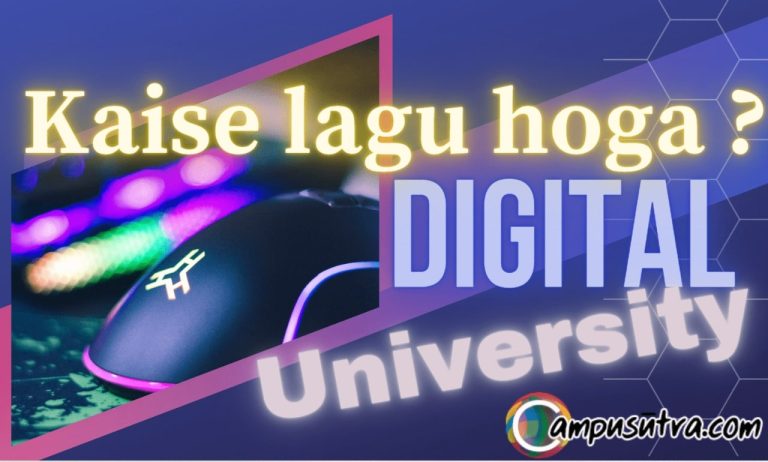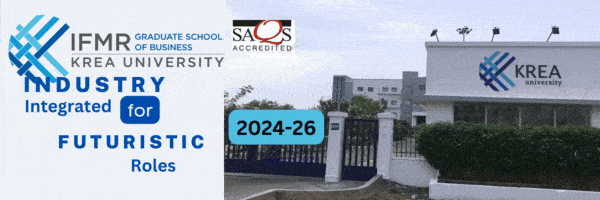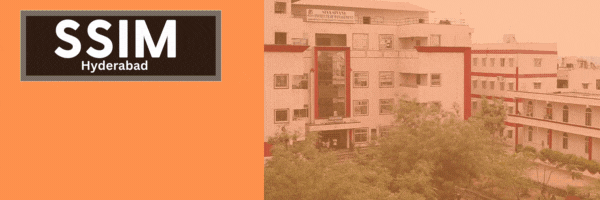Hon. Prime Minister Narendra Modi addressed educationists and regulators in academia in a webinar on Mon Feb 21st, 2022 on the much talked about “Digital University” ever since it was announced in the Union Budget 2022. The PM told the stakeholders to think through the implementation of “universalization of quality education, skill development, urban planning and design, and internationalization”.
Soon after the PM’s webinar, many breakout sessions were held.
Breakout session 1, with the theme – “Digital University : Making World Class Higher Education Accessible for All” ‘was moderated by Chairman of AICTE, Dr. Anil Sahasrabudhe, along with leaders from various institutions, universities and Prof. M Jagadesh Kumar, Chairman of UGC. The aim of the webinar organized by 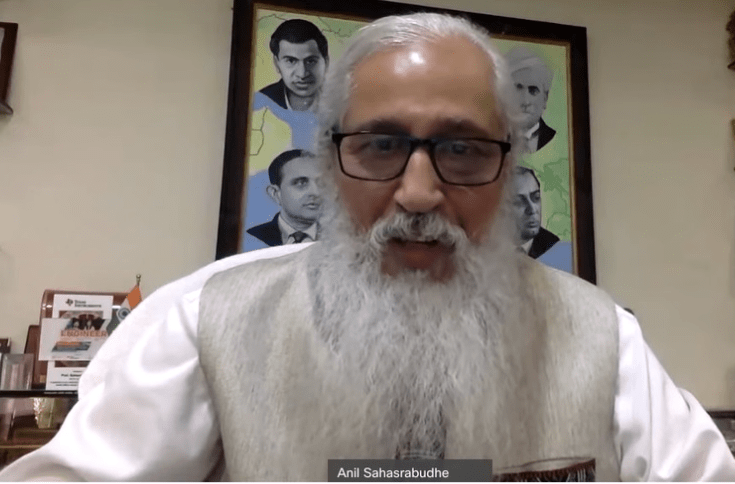 the education ministry was to deliberate on the implementation of the Digital Library.
the education ministry was to deliberate on the implementation of the Digital Library.
Dr. Anil Sahasrabudhe, opened the session citing few actionable items, identifying challenges, modes, strategies and timelines for implementation in line with PM’s thought process, and invited panelists to share their views on the topic, while aptly quoting the PM, “Laagu kaise karey ? ”
Getting a degree of choice from the comfort zone of one’s home.
Brilliant ideas and valuable suggestions came in during the exchanges raising the level of hopes by a few notches about the concept of ‘Digital University’ and how it could be a game changer for a large number of cohorts in India aspiring for Higher studies. ‘Education for all’ finally seemed possible, from a tier 1 city to a far flung village panchayat, diversity in reality, where number of seats will no longer be a concern for the eligible and one can select a subject from unlimited options as long as a device and a decent bandwidth is at his or her disposal.
Technical glitch disrupts session by Director, IIT Madras.
During the virtual session where ‘Digital University’ was being intensely discussed, few disruptions and technical hitches had to be witnessed. The interruption least expected was when Director of IIT Madras (instrumental in offering 1000+ online courses and digital content through GoI initiative – Swayam) was sharing an interesting presentation on Digital University System (DUSU), raising concerns on reaching out to projected 10 million students in higher education through remote connectivity.
BharatNet will be put to test.
It has to be a robust network. After all, it was not that long ago, Namitha Narayanan, a fifth-semester BA English student from Kottakkal in Malapuram, Kerala had to attend her online class perched on the rooftop of her house.
Undoubtedly, the challenge with bandwidth and last mile connectivity has to be addressed to make it a seamless streaming and delivery for making the Digital University work.
Hence, “Laagu kaise karey ?” is definitely the key question here.
Excerpts from the session :
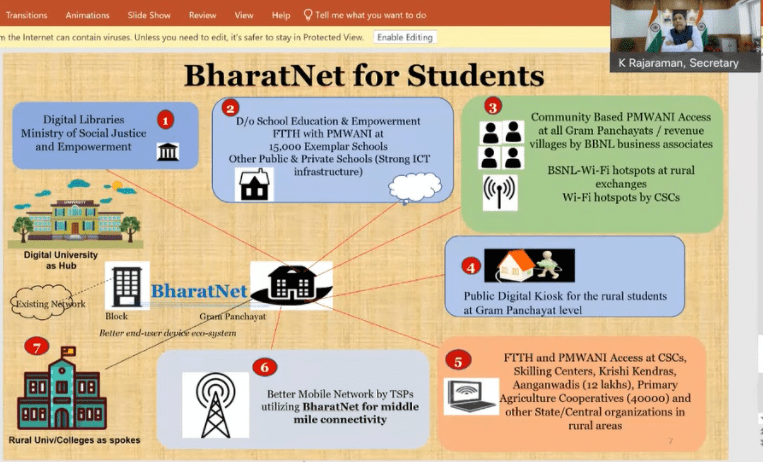
Mr. K. Rajaraman, Secretary, DoT, talked about how the Bharatnet Broadband facility for students, which will connect remote locations with digital library and community learning at the gram panchayat level will be made possible.
Dr. Swati Piramal, Vice-Chairperson, Piramal Group, spoke of the need for the widening reach for delivering quality education to Indian students and towards fostering stronger industry skill linkage with ease of education and focus on harnessing employment opportunities.
Prof. V. Kamakoti, Director IIT Madras, (who took charge recently), spoke about having more such digital consortia and proposed a ‘Digital University Ecosystem’ model which can enable and facilitate foundations, skills, specializations and multi entry/exit points as per NEP. “All they need is to bring in the course content while the delivery of education shall be taken care by the cloud based ‘Digital University System (DUSYS)’ platform” he mentioned.
Prof. M. Jagadesh Kumar, Chairman, UGC spoke about how the Digital University can be the ‘Hub n Spoke’ and play a critical role in providing opportunity for those who are working and want to “reskill to stay relevant”.
He also emphasized on offering ‘customized & personalized courses’ and keeping a track of the hiring trends which helps students become job ready.
Professor E. Vayunandan, Vice-Chancellor, Yashwantrao Chavan Maharashtra Open University, Nashik, talking about imparting knowledge and development of urban areas said that proper implementation of the Digital University concept will enable to “reach the unreached”.
Prof. Govindan Rangarajan, Director, Indian Institute of Science in Bengaluru, raised his concern and said a lot of work is to be done where students of online courses can be given proper “lab experience and practicals”, beyond subjects like computer science, viz. Biology etc where technologies like AR / VR will play a role but how to offer a real practical lab knowledge can be imparted.
Dr. Sahasrabudhe, extended similar concern and stated, “Actual experiment is actual experiment”, no matter to what level of simulations or AR/VR is brought in for the purpose. Imparting practical knowledge in virtual labs is definitely a challenge for digital classrooms and research work and we need to think more on that line.
Among a host of other eminent academicians from Technical Universities, Private Universities, Deemed-to-be Universities, consulting companies like TCS and edtech companies like Upgrade, present were – Dr. Ami U. Upadhyay, Vice-Chancellor, Dr. Baba Saheb Ambedkar Open University; Professor (Dr.) Srikrishna Deva Rao, Vice Chancellor, National Law University, Delhi.
Live streaming was done on YouTube. To follow the entire webinar click

